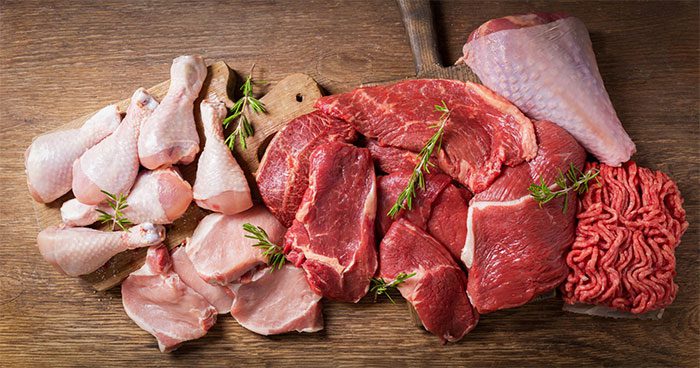Excessive meat consumption is a leading cause of various diseases such as obesity, liver disease, and cardiovascular issues…
Cardiovascular Disease: Often referred to as the “number one killer” in developed countries. Research from Harvard University indicates that the average blood pressure of vegetarians is significantly lower compared to meat eaters; cholesterol levels in meat eaters are many times higher than those in vegetarians, contributing to atherosclerosis, hypertension, heart attacks, and strokes. Consequently, the American Heart Association recommends that a vegetarian diet can prevent 90-97% of cardiovascular diseases.
Diabetes: A diet high in meat, especially fatty meats, increases fatty acids and triglycerides, which are primary contributors to Type II diabetes. Excess fatty acids and triglycerides in the blood inhibit insulin activity, resulting in normal or slightly elevated insulin levels while blood sugar remains high. Switching to a vegetarian diet can significantly reduce blood sugar levels and lower fatty acid concentrations to safe levels.

A high-meat diet can increase the risk of various diseases due to scientifically incorrect eating habits.
Kidney Disease: Numerous studies show that to excrete harmful nitrogen compounds from a meat-heavy diet, the kidneys must work over three times harder than those of vegetarians. Urea and uric acid are two waste products from a meat diet that are highly toxic to the body. When we are young, our kidneys can manage these wastes, but as we age and kidney function declines, the burden of excreting these substances becomes overwhelming, leading to disease.
Gout: When the kidneys cannot adequately filter out harmful nitrogenous substances, creatinine and uric acid levels in the blood rise. Elevated uric acid levels crystallize in small joints, such as fingers and toes, leading to gout. At the joints, uric acid deposits crystallize, causing inflammatory reactions and significant pain for patients.
Obesity: The primary cause of obesity is a diet excessively high in caloric energy from sources like animal fats, butter, cheese, meat, chocolate, flour, and sugar. Once obese, individuals tend to become sedentary, resulting in excess energy being stored as fat, further exacerbating obesity. Obesity can lead to atherosclerosis, hypertension, and joint pain.
Liver Disease: The liver’s function is to synthesize essential substances for the body and eliminate toxins. However, a diet rich in meat and animal fats forces the liver to overwork, leading to damage. Consuming meat and fats can cause fatty liver, fibrosis, and scarring.
Cancer: The reason a high-meat diet is linked to cancer is due to meat preservatives. Meat is high in protein and prone to spoilage, so some unscrupulous sellers treat it with preservatives like nitrites and nitrates. By the time it reaches consumers, we merely wash, season, and cook it. However, these substances do not decompose during cooking. When ingested, they combine with amino acids to form nitrosamines, which are carcinogenic. Additionally, many livestock producers use growth hormones, appetite stimulants, and antibiotics to accelerate growth. Even when animals are sick or have tumors, they may still be slaughtered and sold. Consumers, unaware of these practices, may eat contaminated meat without realizing the potential health risks, including cancer. Many individuals, due to dietary habits, primarily consume meat with little vegetable intake, leading to constipation and toxin accumulation, further facilitating cancer development.
How Much Meat Should You Eat Daily?
It is best to consume meat twice a week, with each serving being around 100-150 grams, depending on your weight and level of obesity to adjust accordingly.
<pNutrition researchers recommend that the average person should not consume more than 300-500 grams of red meat (including beef, pork, veal, etc.) each week. Ideally, meat should be consumed twice a week, with each serving being approximately 100-150 grams, adjusted according to your weight and obesity level. Boiling or stewing is preferable, while frying and grilling should be limited.
Considerations When Eating Meat
Boiling or stewing is preferable, while frying and grilling should be limited.
Pork should only be consumed three times a week. Do not combine beef with pork or goat liver with soybeans as they can counteract each other.
Beef is rich in calories, protein, and nutrients, but should not be combined with seafood, pork, soybeans, or tea during meals.
Chicken and other white meats should also be limited to three times a week, with each serving not exceeding 150 grams. When consuming chicken, avoid pairing it with mint, raw garlic, raw onions, or dog meat/liver.
Lean or fatty meat should not be consumed excessively as it can increase the risk of cardiovascular diseases, atherosclerosis, and colorectal cancer.


















































